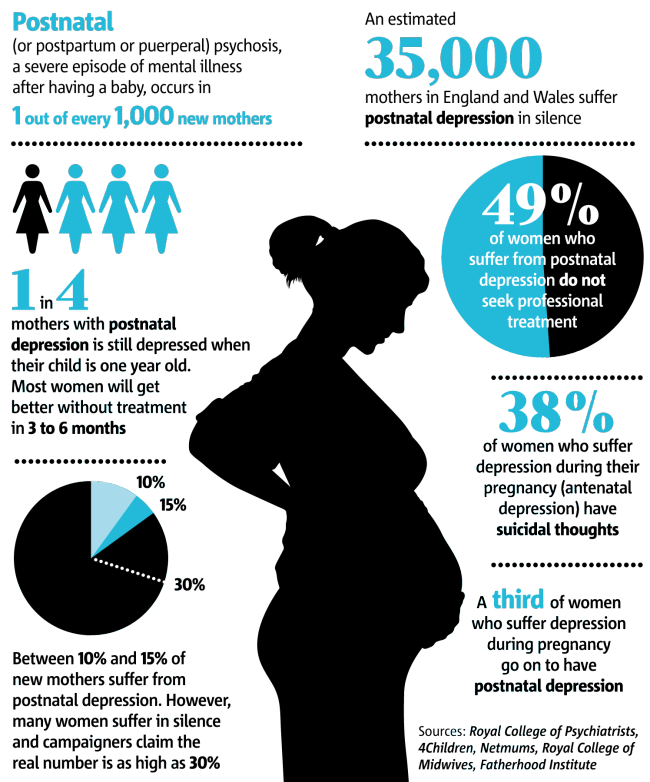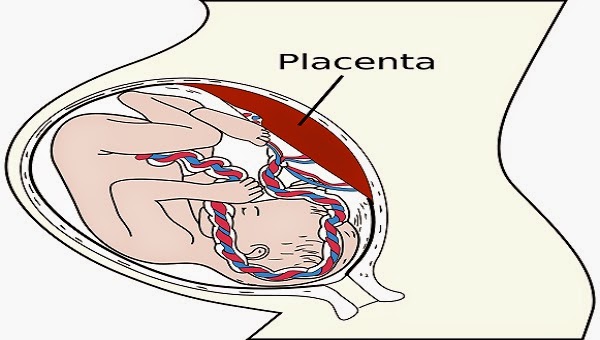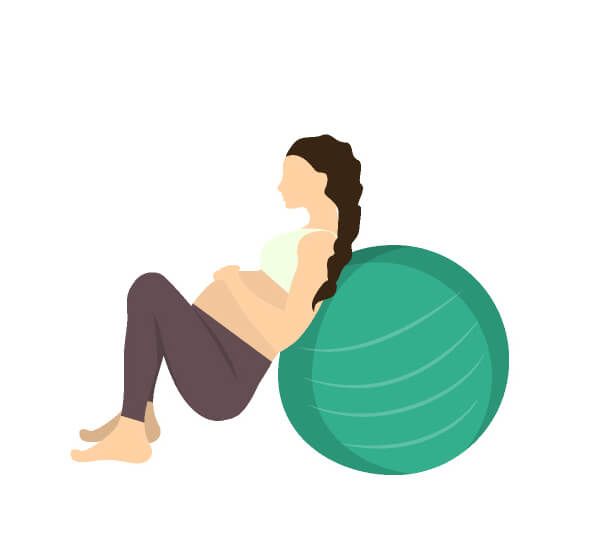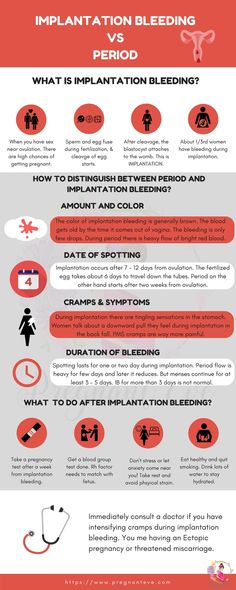29Th week of pregnancy what to expect
29 Weeks Pregnant | Pregnancy
Are you feeling excited? Or nervous? Or maybe you're a bit of both. Being pregnant stirs up all kinds of emotions. You could feel very sad, for example, that a loved one who's passed on will never get to meet your baby. The important thing to do during pregnancy is to talk to friends, family, your midwife or doctor, and discuss anything that's worrying you.
What's happening in my body?
You might be feeling a bit breathless, as your baby pushes against your lungs. It puts a strain on your body carrying extra weight around too.
You may feel irritated when people tell you to enjoy your sleep while you can, as it's not very easy right now. You could be getting leg cramps. Plus if the baby's pressing against your bladder, you may be going to the bathroom more often throughout the night.
Babies seem to have a habit of being really active just as you want to go to sleep. They have their own sleeping and waking patterns, and you'll be lucky if your schedules coincide! Get to know your baby's patterns. If you notice that they change or stop, contact your midwife or hospital.
Rest when you can in the day. It's best to try and sleep on your side. Try supporting your body when you lie down by putting a pillow under your bump, and another one between your legs.
If you feel unable to cope, because you're just too tired, talk to your midwife or doctor.
How can I tell if i'm having a boy or a girl?
You may have been told the sex of your baby at your anomaly scan, but sometimes it's tricky to get a proper look. Also it may not be your hospital's policy to reveal the sex before the birth.
It's not possible to tell your baby's sex from any of these following things.
The position of your bump
Some people think a neat high bump means you're carrying a boy, while a low rounded bump contains a girl. In fact, the differences are more to do with:
- your height
- your muscles
- how many babies you've already had
- how much you eat in pregnancy
Your baby's heart rate
Some people say that if it's over 140 bpm, then it's more likely to be a girl, but there's no science to back this up.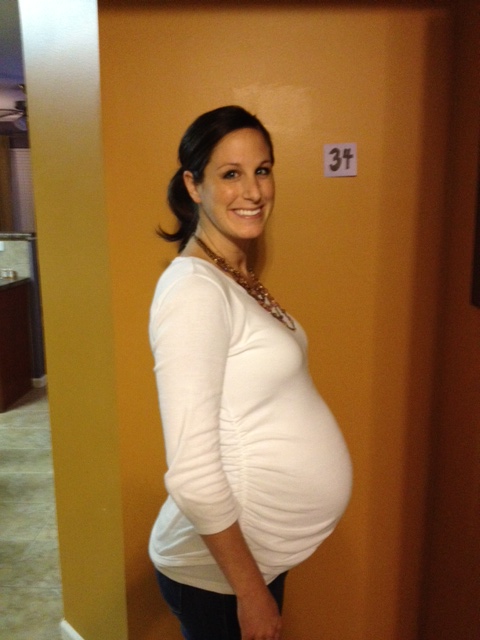
Gender prediction kits you can buy on the internet
These claim to measure testosterone in your urine, or traces of the baby's DNA in your blood. However they rely on you providing a usable sample and that's not easy. They are also very expensive. Some doctors think that you're just as likely to get the right result by tossing a coin.
Spinning a wedding ring over your pregnant belly
It's supposed to spin in circles for a girl, or like a pendulum for a boy. But there's no scientific basis to this.
3rd trimester pregnancy symptoms (at 29 weeks)
You could be feeling awkward and uncoordinated. It takes a while to get used to having a bump. Your sense of balance could be all over the place, as your centre of gravity changes. If you fall over, don't panic, you've got plenty of padding in there, but let your midwife or doctor know.
This week, your signs of pregnancy could include:
- sleeping problems (week 19 has information about feeling tired)
- swollen and bleeding gums (week 13 has information about gum health during pregnancy)
- pains on the side of your baby bump, caused by your expanding womb ("round ligament pains")
- piles (read about piles on week 22's page)
- headaches
- backache
- indigestion and heartburn (week 25 talks about digestive problems)
- bloating and constipation (read about bloating on week 16's page)
- leg cramps (week 20 explains how to deal with cramp)
- feeling hot
- dizziness
- swollen hands and feet
- urine infections
- vaginal infections (see week 15 for vaginal health)
- darkened skin on your face or brown patches – this is known as chloasma or the "mask of pregnancy"
- greasier, spotty skin
- thicker and shinier hair
You may also experience symptoms from earlier weeks, such as:
- mood swings (week 8's page has information on mood swings)
- weird pregnancy cravings (read about pregnancy cravings on week 5's page)
- a heightened sense of smell
- sore or leaky breasts (read about breast pain on week 14's page)
- a white milky pregnancy discharge from your vagina and light spotting (seek medical advice for any bleeding)
Read Tommy's guide to common pregnancy symptoms.
What does my baby look like?
Your baby, or foetus, is around 38.6cm long from head to heel, and weighs about 1.2kg. That's approximately the size of a butternut squash and the weight of a small chicken.
Your baby is perfectly formed. Over the next few weeks, they have lots to do, such as maturing their organs and gaining fat.
For the past few weeks, your baby has been covered by a greasy white layer of something called "vernix" that protects the skin and soft, downy hair for warmth. This starts to disappear now. Your baby is getting ready to make an entrance in about 11 weeks' time.
Action stations
Start writing your birth plan, if you would like to have one. Think about:
- what sort of pain relief you want, if any
- who you would like to be your birth partner and what kind of role you want them to have
This week you could also...
You have maternity rights. You can ask for a risk assessment of your work place to ensure that you're working in a safe environment.
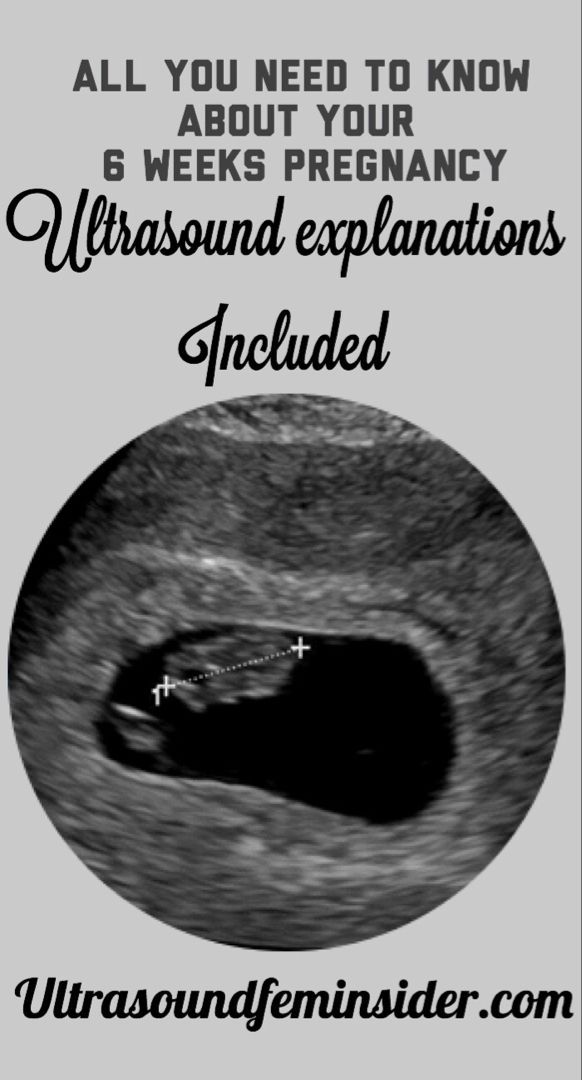 You should not be lifting heavy things and you may need extra breaks and somewhere to sit. You can also attend antenatal appointments during paid work time.
You should not be lifting heavy things and you may need extra breaks and somewhere to sit. You can also attend antenatal appointments during paid work time.It's a good time to tone up your pelvic floor muscles. Gentle exercises can help to prevent leakage when you laugh, sneeze or cough. Get the muscles going by pretending that you're having a wee and then stopping midflow. Visit Tommy’s for more ideas about pelvic floor exercises/
Ask your midwife or doctor about online antenatal classes – they start around now. The charity Tommy's has lots of useful information on antenatal classes and preparing you for birth.
Even if you've had children before, they're still worth going to as you can meet other parents-to-be. The NCT offers online antenatal classes with small groups of people that live locally to you.
To keep bones and muscles healthy, we need vitamin D. From late March/early April to the end of September, most people make enough vitamin D from sunlight on their skin.
 However, between October and early March, you should consider taking a daily vitamin D supplement because we cannot make enough from sunlight.
However, between October and early March, you should consider taking a daily vitamin D supplement because we cannot make enough from sunlight. Some people should take a vitamin D supplement all year round, find out if this applies to you on the NHS website. You just need 10 micrograms (it's the same for grown-ups and kids). Check if you're entitled to free vitamins.
It's recommended that you do 150 minutes of exercise a week while pregnant. You could start off with just 10 minutes of daily exercise - perhaps take a brisk walk outside. Check out Sport England's #StayInWorkOut online exercises (scroll to the pregnancy section). Listen to your body and do what feels right for you.
There's no need to eat for 2. Now you're in the 3rd trimester, you may need an extra 200 calories a day, but that's not much. It's about the same as 2 slices of wholemeal toast and margarine.
Try and eat healthily with plenty of fresh fruit and veg, and avoid processed, fatty and salty foods.
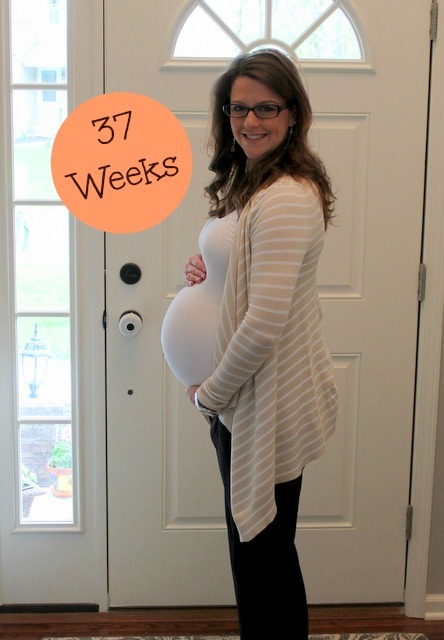 You may be able to get free milk, fruit and veg through the Healthy Start scheme.
You may be able to get free milk, fruit and veg through the Healthy Start scheme.How are you today? If you're feeling anxious or low, then talk to your midwife or doctor who can point you in the right direction to get all the support that you need. You could also discuss your worries with your partner, friends and family.
You may be worried about your relationship, or money, or having somewhere permanent to live. Don't keep it to yourself. It's important that you ask for help if you need it.
Getting pregnant again is probably the last thing on your mind. However now is a good time to start planning what type of contraception you would like to use after your baby is born. Getting pregnant again could happen sooner than you realise and too short a gap between babies is known to cause problems. Talk to your GP or midwife to help you decide.
You and your family should follow the government and NHS guidance on coronavirus (COVID-19):
To find out about about COVID-19 and pregnancy, childbirth and breastfeeding, have a look at advice on the:
29 Weeks Pregnant: Symptoms and Baby Development
29 Weeks Pregnant: Your Baby's Development
Your little one is getting ready to meet you! She’s starting to gain weight more quickly.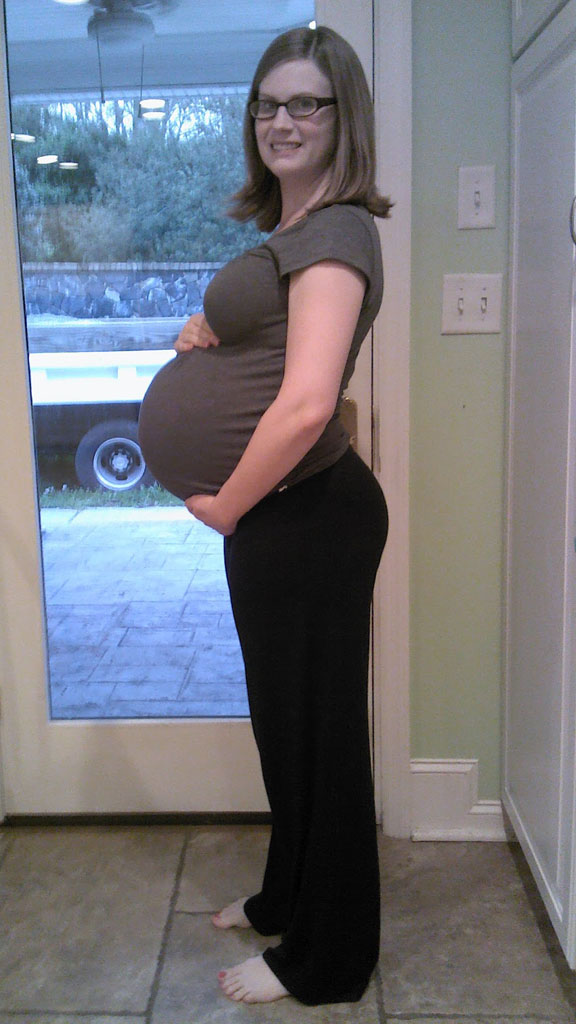 During the last two and a half months of your pregnancy, she’ll continue to put on more padding and will likely double her current weight.
Although the major body and organ development work is nearly complete, her lungs may not be mature enough for life outside the womb just yet.
You might notice your baby is kicking more often, and that those kicks are getting stronger as your baby changes her position from time to time. When you are 29 weeks pregnant, your healthcare provider may advise you to count her fetal movements once each day. This helps check she’s developing and moving normally.
To help you count your baby’s kicks, download our fetal movement tracker.
Wondering how many months along you are at 29 weeks pregnant? As pregnancy doesn't fit neatly into months, you could be close to being eight months along. For more on how your little one will develop in the coming months, check out our third trimester guide.
During the last two and a half months of your pregnancy, she’ll continue to put on more padding and will likely double her current weight.
Although the major body and organ development work is nearly complete, her lungs may not be mature enough for life outside the womb just yet.
You might notice your baby is kicking more often, and that those kicks are getting stronger as your baby changes her position from time to time. When you are 29 weeks pregnant, your healthcare provider may advise you to count her fetal movements once each day. This helps check she’s developing and moving normally.
To help you count your baby’s kicks, download our fetal movement tracker.
Wondering how many months along you are at 29 weeks pregnant? As pregnancy doesn't fit neatly into months, you could be close to being eight months along. For more on how your little one will develop in the coming months, check out our third trimester guide.
RELATED PREGNANCY TOOL
Baby Name Generator
By gender:
Unisex
By theme:
Nature
Mythology
The Size of the Fetus at 29 Weeks Pregnant
At 29 weeks, the average fetus is about the size of a butternut squash.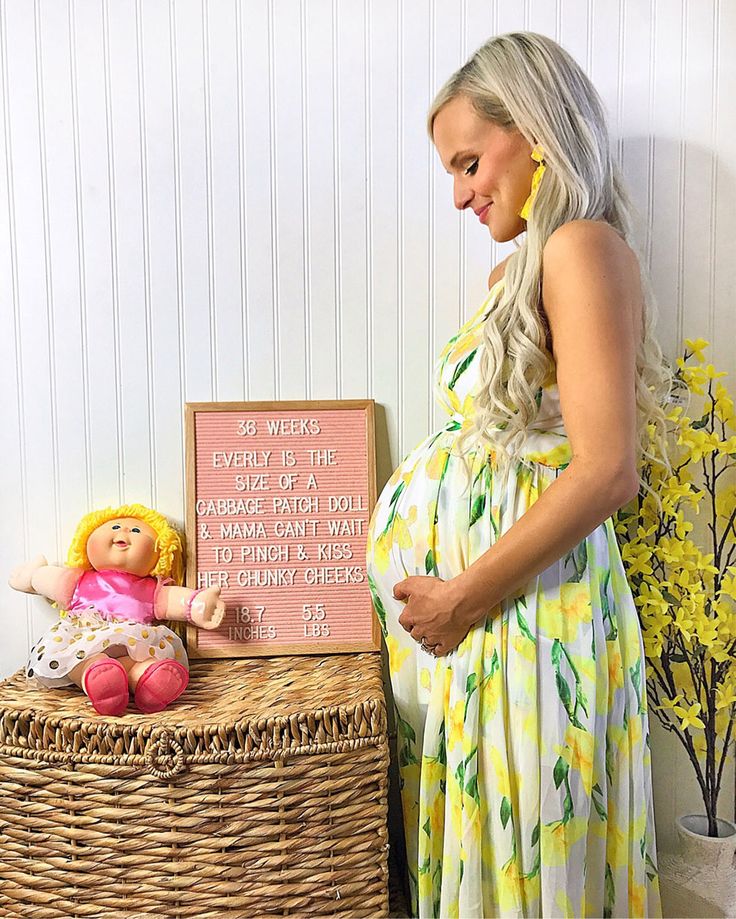 The illustration below offers you a look at how your baby may be positioned at 29 weeks.
The illustration below offers you a look at how your baby may be positioned at 29 weeks.
Mom’s Body at 29 Weeks Pregnant
Right now, eating healthily is vital for the growth of your baby. Two important nutrients include iron and calcium. Iron helps your body maintain and replenish red blood cells, which transport oxygen throughout the body and prevent anemia.
Moms-to-be need at least 30 milligrams of iron each day, which can come from iron-rich foods like beef or pork liver, beans, and fortified whole-grain cereals and oatmeal. Your healthcare provider will likely keep an eye on your iron levels and prescribe an iron supplement, if necessary.
Calcium is also critical for your body and your growing baby, as it not only strengthens your bones and teeth, but also helps to build and grow your baby’s little bones and choppers.
You’ll need to be getting about 1,000 milligrams of calcium each day (1,300 a day if you're younger than 19). You can get this much calcium from just a few slices of whole grain bread, or from cheese, broccoli, or yogurt.
Overall, during this last trimester, you need about 450 extra calories each day, and at 29 weeks pregnant, you can expect your weight gain to be about one pound each week from now until the end of your pregnancy, or approximately 12 pounds, assuming you were in the normal BMI range before your pregnancy and that you give birth at 40 weeks.
Learn more about weight gain during pregnancy.
You can get this much calcium from just a few slices of whole grain bread, or from cheese, broccoli, or yogurt.
Overall, during this last trimester, you need about 450 extra calories each day, and at 29 weeks pregnant, you can expect your weight gain to be about one pound each week from now until the end of your pregnancy, or approximately 12 pounds, assuming you were in the normal BMI range before your pregnancy and that you give birth at 40 weeks.
Learn more about weight gain during pregnancy.
29 Weeks Pregnant: Your Symptoms
At 29 weeks pregnant, here are some of the symptoms you may be experiencing:
Varicose veins. If you’re noticing sore and possibly itchy blue veins bulging on your legs, these are probably varicose veins. They occur when your growing uterus puts pressure on the major veins that move blood from your lower body to your heart. You’re more likely to develop them if this isn’t your first pregnancy, or if varicose veins run in your family.
 Although they may look unpleasant, they’re usually not a medical problem. To relieve any discomfort, try not to sit or stand for long periods of time, and elevate your feet whenever possible to improve circulation. Wearing support hose can also help — just make sure the style you choose does not constrict at the thigh or the knee.
Although they may look unpleasant, they’re usually not a medical problem. To relieve any discomfort, try not to sit or stand for long periods of time, and elevate your feet whenever possible to improve circulation. Wearing support hose can also help — just make sure the style you choose does not constrict at the thigh or the knee.
Fatigue. If you’re feeling wiped out lately, know that this is not uncommon at this stage of your pregnancy. Your body is continuously working to nourish and support your baby at 29 weeks pregnant, which takes quite a bit of energy. You might also be finding it difficult to get a good night’s sleep. Take advantage of any opportunity to rest, even if it’s just 15 minutes of shut-eye here and there. At 29 weeks pregnant, you may want to try sleeping with a pillow under your belly for support. Keep exercising, if you can, because this will help keep your energy levels up. Get more tips on how to get a good night’s sleep while pregnant.

Leg cramps. This is a common complaint during pregnancy, and medical experts aren't sure what causes them. Painful cramps in your calves can sometimes strike at night, interrupting your sleep. To ward them off, or at least to ease the discomfort, try stretching your legs before you go to bed. If a cramp does strike, flex your foot upward and then point it back down a few times. A gentle calf massage can also help.
Shortness of breath. Seeing your new baby for this first time may take your breath away, but until that moment comes, you may experience a different type of breathing difficulty. At this stage of pregnancy, your growing uterus isn’t leaving much space for your other abdominal organs, so your stomach and diaphragm press up against your lungs. As a result, your lungs don’t have as much room to expand. Help your lungs get the breathing room they need by practicing good posture. To catch your breath, try to move more slowly and don’t overexert yourself.
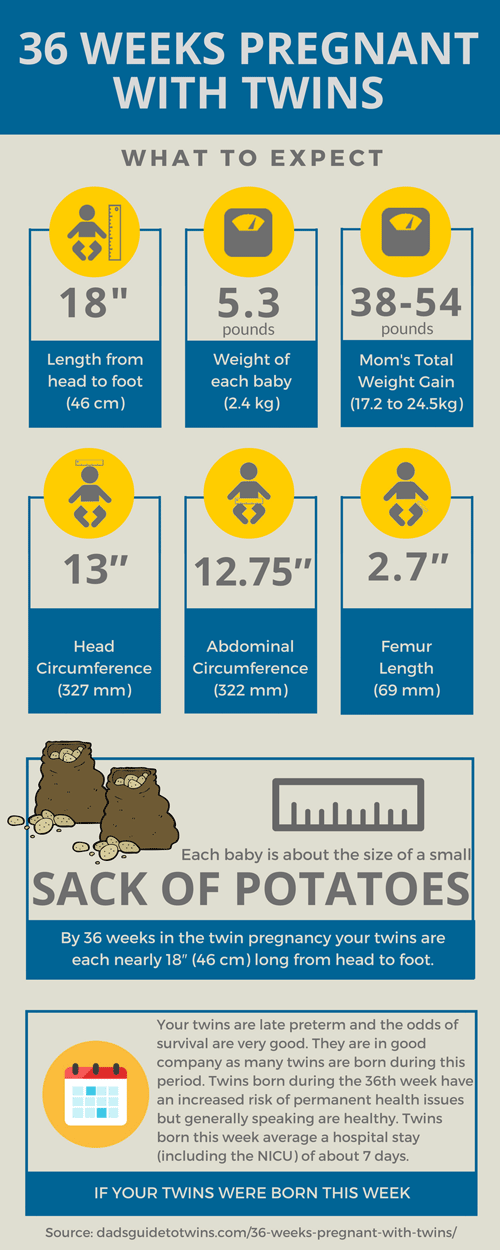 If you experience any chest pains at 29 weeks pregnant, this is a symptom you should not ignore. Call your healthcare provider for advice.
If you experience any chest pains at 29 weeks pregnant, this is a symptom you should not ignore. Call your healthcare provider for advice.
29 Weeks Pregnant: Things to Consider
If you’re feeling a little stressed right about now, you may want to explore some relaxation techniques. Although some pregnancy-related stress is normal, you shouldn’t be feeling anxious every day. One way to help yourself relax is to practice prenatal yoga or meditation. Your healthcare provider can give you more information about practicing yoga safely during the last trimester. Learning how to relax your body and mind when you’re 29 weeks pregnant can help you lower your blood pressure; it can also reduce muscle tension and ease lower back pain, helping you feel more comfortable during the final stretch of your pregnancy. Other stress busters: Get a massage, write in a journal, or simply listen to your favorite music while resting.
There are several different methods of childbirth preparation that experts say can help you through labor and delivery, among them the Lamaze, Bradley, and Read methods.
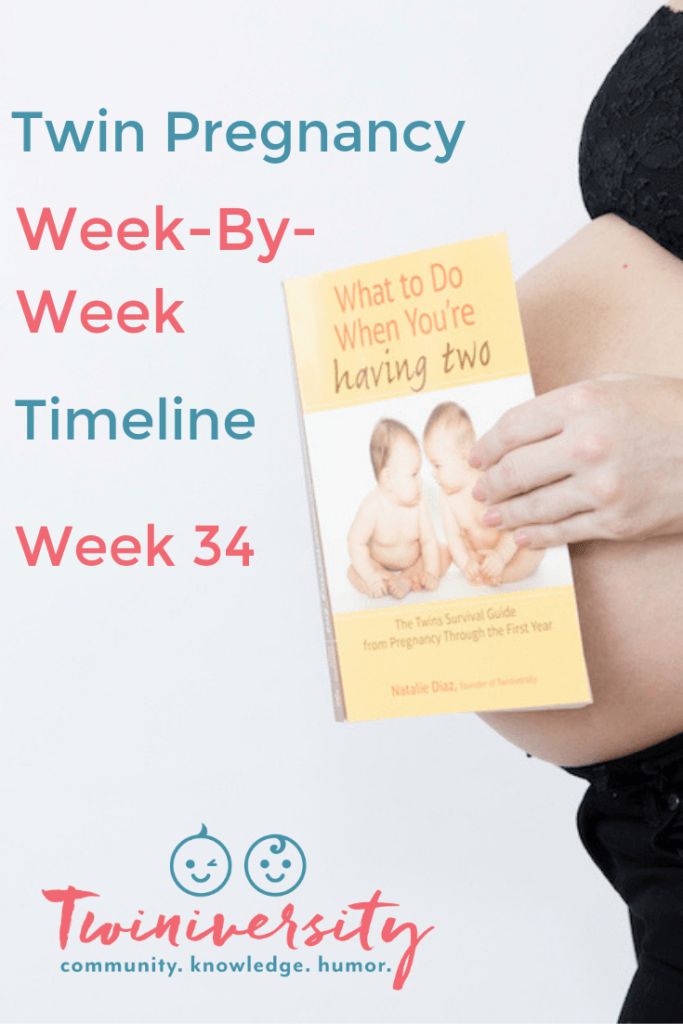 If you haven’t done so already, you may want to learn more about these methods, as they can help you manage pain and anxiety during labor through relaxation techniques and controlled breathing. Taking a childbirth preparation class is a great option, as these courses often teach relaxation techniques. Ask your healthcare provider for help finding one in your area. We also offer some free online childbirth education videos that you can access anytime.
If you haven’t done so already, you may want to learn more about these methods, as they can help you manage pain and anxiety during labor through relaxation techniques and controlled breathing. Taking a childbirth preparation class is a great option, as these courses often teach relaxation techniques. Ask your healthcare provider for help finding one in your area. We also offer some free online childbirth education videos that you can access anytime.
Do you know where you’re scheduled to give birth yet? If yes, your hospital or birthing center may allow you to take a tour of its facilities before your due date. This is also a great chance to plot the quickest route to the hospital, and to figure out logistics like parking and entrances. If you do take a tour, you can ask hospital staff about their policies, including who is allowed in the delivery room and whether photography or videography is allowed.
Have you decided who (if anyone) you want to be with you when you give birth? Your birth partner might be your partner, or may be a close friend or relative.
 Your birth partner can do lots to support you during labor and delivery. They can keep you company, give massages, and encourage you. Your birth partner can also help you use those relaxation and breathing techniques that you might have learned at your prenatal classes. He or she can also help with communication between you and your midwife or healthcare provider, making sure your wishes are understood and helping you to feel more in control of what’s going on. It’s a good idea to discuss your preferences and feelings about your labor and delivery with your birth partner well in advance.
Your birth partner can do lots to support you during labor and delivery. They can keep you company, give massages, and encourage you. Your birth partner can also help you use those relaxation and breathing techniques that you might have learned at your prenatal classes. He or she can also help with communication between you and your midwife or healthcare provider, making sure your wishes are understood and helping you to feel more in control of what’s going on. It’s a good idea to discuss your preferences and feelings about your labor and delivery with your birth partner well in advance.
Consider how you plan to handle child care after your baby is born, particularly if you and your partner will be returning to work. You're likely to have a variety of choices, from child care centers to in-home care, each with its own cost and availability factors, so it’s best to do some research and start making arrangements before your baby arrives. This will give you one less thing to worry about when you’re busy caring for your newborn.
 If you already have children, you may want to make arrangements for them to be looked after when you go into labor and in the first few days or weeks after your new baby comes home.
If you already have children, you may want to make arrangements for them to be looked after when you go into labor and in the first few days or weeks after your new baby comes home.
Your baby shower’s host may be asking you for details of your gift registry so that she can send out the invitations and point guests to your registry. If you’re still finalizing your registry, check out these newborn must-haves to make sure you’ve covered all the essentials.
29 Weeks Pregnant: Ask Your Doctor
When will your baby be fully developed and ready for the outside world?
Should you be doing kick counts? How should you do them?
Is it likely that you’ll need an episiotomy (a small cut in the perineum, between the vagina and anus) if you have a vaginal delivery? What exactly does this involve, and why might it be offered?
Is a written birth plan recommended for you?
What are some symptoms at 29 weeks pregnant, or beyond, that you should definitely call your healthcare provider about?
How often will you need to come in for a checkup between now and the birth?
Do you have any of the risk factors of preeclampsia, and what warning signs should you look out for?
Is a 3D or 4D ultrasound recommended for you, and when would be the best time to have one of these scans?
29 Weeks Pregnant: Your Checklist
Check with your workplace about any maternity leave paperwork that you will need to complete.
 You might also like to create a plan for how you will gradually hand over your tasks so things aren’t left to the last minute.
You might also like to create a plan for how you will gradually hand over your tasks so things aren’t left to the last minute.
Read up on the typical third trimester prenatal care and ask your healthcare provider for personalized information on what checkups and tests you can expect in the coming weeks and months.
Schedule a tour of your birth hospital or birthing center.
Prepare your baby’s nursery with all the essentials.
Choose or start designing a birth announcement. You might want to have traditional cards printed that you can send to your family and friends, or you might want to design an announcement to share your happy news via email or on social media.
Wondering which exact products to buy or to add to your baby shower registry? We asked thousands of Pampers Parents to tell us which products they’d recommend and why. Check out the lists of best baby products as voted by Pampers Parents.

Sign up for even more weekly pregnancy tips:
29th week of pregnancy what happens to the fetus
Contents
The third trimester of pregnancy has begun this week, there are still three months ahead, that is, 12 obstetric weeks.
What happens to the baby at 29 weeks?
The kid is actively preparing for a meeting with the outside world.
- During this time, the bone marrow, which produces blood cells, began to work steadily in the fetus. The reproductive system is completing its formation, the endocrine system is actively developing.
- Even more actively, the baby distinguishes between light and sounds, reacts to them, notifying the expectant mother of this with his jolts. He also makes sucking and swallowing movements, improving these reflexes. And the baby's digestive system is preparing to absorb breast milk in the future.
- By this time, the urinary system is working stably, the baby's kidneys excrete up to 0.
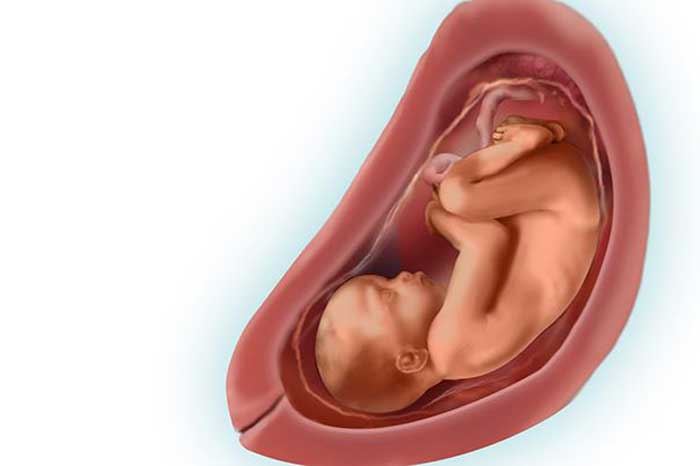 5 liters of urine every day. They enter the amniotic fluid, which is updated every three hours.
5 liters of urine every day. They enter the amniotic fluid, which is updated every three hours. - By week 29, the baby weighs over 1200 grams, and its height increases to 38 cm. Such dimensions already prevent the baby from actively moving in the womb, as it was before.
- The baby's body is rounded, gaining subcutaneous fat.
- A striking phenomenon at this stage of pregnancy is the formation of the baby's immune system, although he still takes the main antibodies from his mother. For spontaneous breathing, the fetus still accumulates surfactant.
What happens to mom at 29week of pregnancy?
By this time, a woman can gain weight over 8-9 kilograms. Every next week, weight gain up to 300-400 grams is considered normal, and for those carrying twins - 500-600 grams.
If before this period the woman has not yet felt training contractions, then this can probably happen at the 29th week of pregnancy. These contractions prepare the woman's body for the upcoming birth.
As a rule, they are short-lived and painless. But if you doubt your feelings, then it is better to see a doctor in order to avoid problems due to the increased tone of the uterus.
- The enlarged uterus, which is now about a palm above the navel, can still cause heartburn, constipation, difficulty breathing, and changes in gait.
- The mammary glands are actively preparing for the upcoming lactation. This is accompanied by swelling of the breast.
- The mother's body is under tremendous stress, so a woman may feel some pain in the hypochondrium and lower abdomen, legs, head, neck or lower back. The cause of pain at this time is a shift in the center of gravity, pressure drops. Listening to her feelings, the expectant mother should understand that it is worth consulting a doctor if the pain intensifies.
Watch your vaginal discharge, as changes may indicate problems that you should discuss with your doctor. Light, light discharge is considered normal. Bloody and watery discharges are very dangerous, if they are found, consult a doctor immediately. This may signal preterm labor.
Bloody and watery discharges are very dangerous, if they are found, consult a doctor immediately. This may signal preterm labor.
Advice for expectant mothers
Watch your weight, you don't have to "eat for two". Weight gain each subsequent week should not exceed 400 grams.
- Communicate with your baby through conversations, songs, reading fairy tales, listening to soothing music. Thus, you establish psychological contact with your unborn child.
- Avoid crowded places, especially during SARS epidemics.
- Your menu should contain a complete set of vitamins and microelements, in the range of vegetables, fruits, herbs, cereals, milk and dairy products. For the full development of the child, protein is needed, which is contained in beef, turkey, liver, cheese. Iodine, phosphorus and fatty acids are found in marine fish. To preserve as many nutrients as possible, steam, stew or bake in the oven.
Don't forget about outdoor walks and physical activity.
Thanks to them, you keep your body in good shape, strengthen the cardiovascular system, prepare for childbirth, relieve stress and get positive emotions.
29th week of pregnancy, baby weight, photo, pregnancy calendar | Mamovedia
The 29th week of pregnancy is somewhat special, as it is the last working week before a long maternity leave. And there is joy in this, and a little sad... It is especially sad for those who “burn” with their work and cannot imagine it without themselves, but themselves without it. Yes, it will be very unusual not to get up in the morning, take your time and understand that someone else will now do your job. It will probably be very nice if they call you and ask for advice on this or that issue, but you should not be upset if they manage without your help :) Remember that a new page begins in the book of your life - sensual, full of love and maternal affection.
What's going on?
You may be bored of having to take a break from your career, but your baby is very happy about this - his mother will soon be all at his disposal.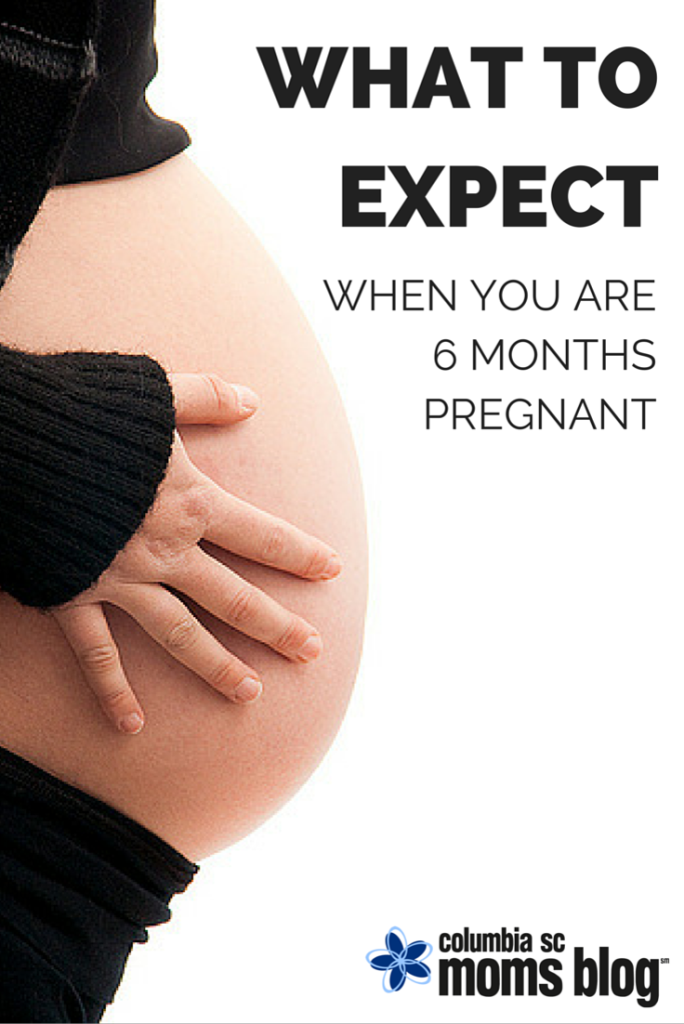
The baby is 27 weeks old, the baby's weight has increased to 1.25 kg. The height is 37 cm , and from the head to the tailbone - 26 cm .
Continues active process of accumulation of subcutaneous fat - the main source of energy. The kid gradually masters the basics of regulating the temperature of his own body.
The child's bone marrow has already completely taken over the function of producing red blood cells.
All systems of the baby continue to prepare for life outside the mother's tummy. Every day the amniotic fluid is filled with the baby's urine with a volume of almost half a liter ! The development of the nervous system continues. There is a formation of systems that will be responsible for the immunity of the child. Antibodies are passed from you to the baby. They will protect him after birth, as his own immune system will still be very weak.
The baby is growing and his head is becoming more proportional to the size of the body
The eyes are already beautifully shaped with eyelashes and eyebrows.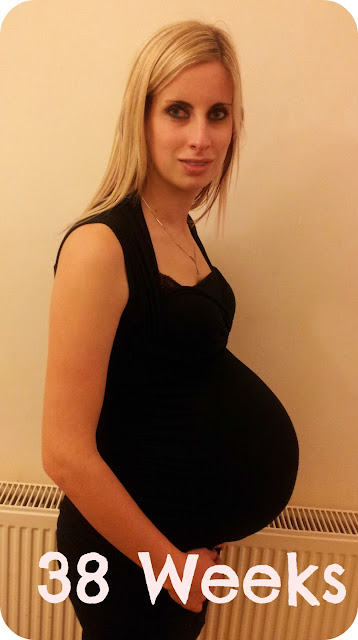 The baby can already open and close his eyes, as well as focus his eyes. The hair also grows. The teeth already have enamel, but of course they are still hidden in the gums. Although there are cases (1 in 2000) when at the 29th week of pregnancy the first teeth are already erupting in the baby. But after birth, they are removed for safety reasons - there is a possibility of such a tooth falling out, and the baby may suffocate because of it, and such teeth can also cause pain during breastfeeding.
The baby can already open and close his eyes, as well as focus his eyes. The hair also grows. The teeth already have enamel, but of course they are still hidden in the gums. Although there are cases (1 in 2000) when at the 29th week of pregnancy the first teeth are already erupting in the baby. But after birth, they are removed for safety reasons - there is a possibility of such a tooth falling out, and the baby may suffocate because of it, and such teeth can also cause pain during breastfeeding.
What does it feel like?
You are already accustomed to your little “bubbler”, the morning begins with greeting the baby with an affectionate: “good morning, my dear, what did you dream about” or “why were you so spinning at night and didn’t let me sleep.” During the day, you mentally or aloud many times turn to the baby with a story, then with complaints about something or someone, then with questions. And it's so wonderful - to understand that you are not alone, a small miracle grows in you, your little blood , your heart and your love.
How much time has passed since the moment you first felt the baby move, and you still remember these sensations - so unusual, they made your heart skip a beat, a wave of tenderness and love covered you from the head ... Now the movements wear several different character and power. The baby is already big and it is already a bit crowded in the uterus, so tremors are stronger and more expressive . You are already accustomed to them, it is an integral part of your daily existence, and it is also a way of communicating.
The baby needs to increase the space around him - and the uterus, of course, satisfies this need, it grows and at the 29th week of pregnancy rises above the navel by 7.5 - 10.2 cm , and above the pubic symphysis by 29 cm.
The “neighboring organs” of the uterus are now going through hard times, or rather, they live under the influence of constant pressure, and you, as their owner, feel the consequences of such a “life”: the bladder calls you to the toilet; the stomach transmits its complaints through heartburn; lungs "groan" with heavy breathing . .. In addition, you may experience heaviness in the legs and back pain. It is important to understand that you can improve your condition and well-being, but you are unlikely to be able to completely eliminate these inconveniences before the very birth.
.. In addition, you may experience heaviness in the legs and back pain. It is important to understand that you can improve your condition and well-being, but you are unlikely to be able to completely eliminate these inconveniences before the very birth.
The straight back yoga pose will help you relieve pressure on your diaphragm and make breathing easier. To improve your overall well-being follow your diet, do the right exercise, monitor your posture and be sure to get plenty of rest!
8.5 - 11.25 kg – this is how many kilograms your normal weight could have increased by.
Despite all the difficulties, smile and rejoice - a good mood is a daily rule that must be fulfilled!
Nutrition for the expectant mother!
At this stage of pregnancy, the baby still needs:
- calcium - the development of bones and teeth continues;
- fatty acids – essential for brain development;
- gland - prevention of anemia after birth.

Depending on the needs of the baby, the mother-to-be should pay attention to foods such as dark green vegetables, yogurt, nuts, red meat and oily fish.
Risk factors for mother and child!
Edema, protein in the urine, increased blood pressure - these are symptoms of preeclampsia - toxicosis of the second half of pregnancy. This is one of the most serious complications that can occur at this pregnancy. If you are concerned about at least one of the above, contact your doctor.
But one should not expect preeclampsia with folded arms. Avoid this complication by taking preventive measures:
- Fluid control: Normally you should drink no more than 1.5 liters of fluid (including liquid foods, fruits, tea/coffee and milk). But in addition to the use of fluid, it is important to control its output in the form of urine, since it is the accumulation of fluid in the tissues in the form of edema that can provoke toxicosis. This happens when less fluid comes out in the urine than you consume.

- Weight gain control. Do not abuse pastries and foods that are too high in calories - the maximum allowable weight gain in the third trimester is 300 g per week.
- Control of the daily menu - nutrition should be complete and balanced with a minimum content of table salt.
Familiarize yourself with the phenomenon of "inferior vena cava syndrome" . It occurs when the uterus compresses the inferior vena cava, thus disrupting the process of blood flow to the heart. This in turn causes a decrease in blood pressure, and as a result - loss of consciousness. Why is it dangerous? The fact that this can happen in a dream or during rest, when you take a horizontal position and rest, lying on your back. So, it's time to forget about rest and sleeping on your back! Surround yourself with pillows and blankets and sit on the side.
Important!
With the increase in the duration of pregnancy, new inconveniences come and existing inconveniences intensify. You become less and less lively, the usual manipulations are more and more difficult - such as: putting on shoes, getting a pedicure, sitting down, and the like. Well, get used to it and find for yourself alternative solutions to temporary difficulties: the help of loved ones will come in handy , first of all, your husband, it will not be superfluous to make an appointment for a pedicure - a master of his craft will solve one of your problems without any problems :-)
You become less and less lively, the usual manipulations are more and more difficult - such as: putting on shoes, getting a pedicure, sitting down, and the like. Well, get used to it and find for yourself alternative solutions to temporary difficulties: the help of loved ones will come in handy , first of all, your husband, it will not be superfluous to make an appointment for a pedicure - a master of his craft will solve one of your problems without any problems :-)
The last week at work, as a rule, passes already without any special loads
Cases are transferred, personal belongings are collected and little by little have already been sent home or presented to colleagues. No matter how long you plan to stay on maternity leave, it will not be superfluous to organize gatherings with colleagues - a tea party with a cake or pizza with juice :-) After the birth of a baby, you will not have the opportunity and time for meetings and gatherings for some time, so there will be something to remember and smile at moments of increased “tension”.


